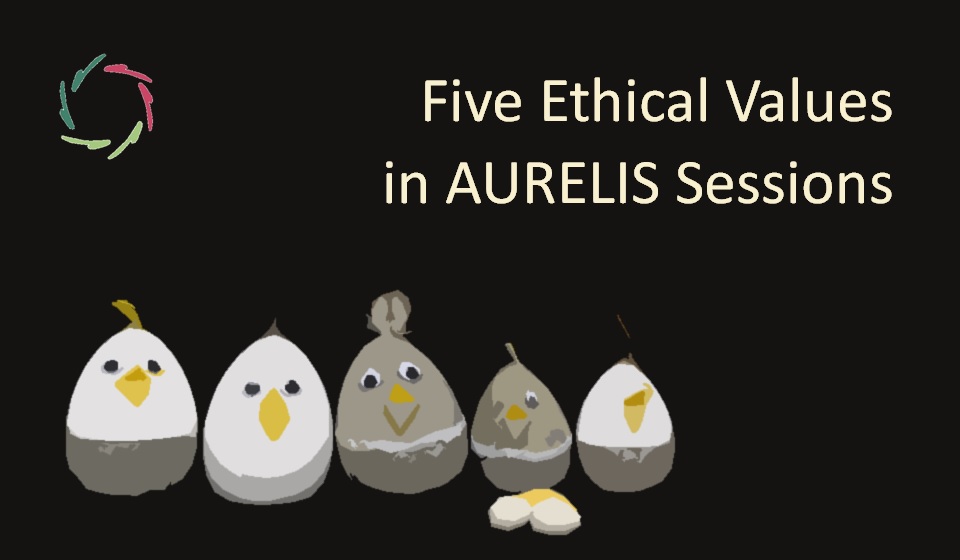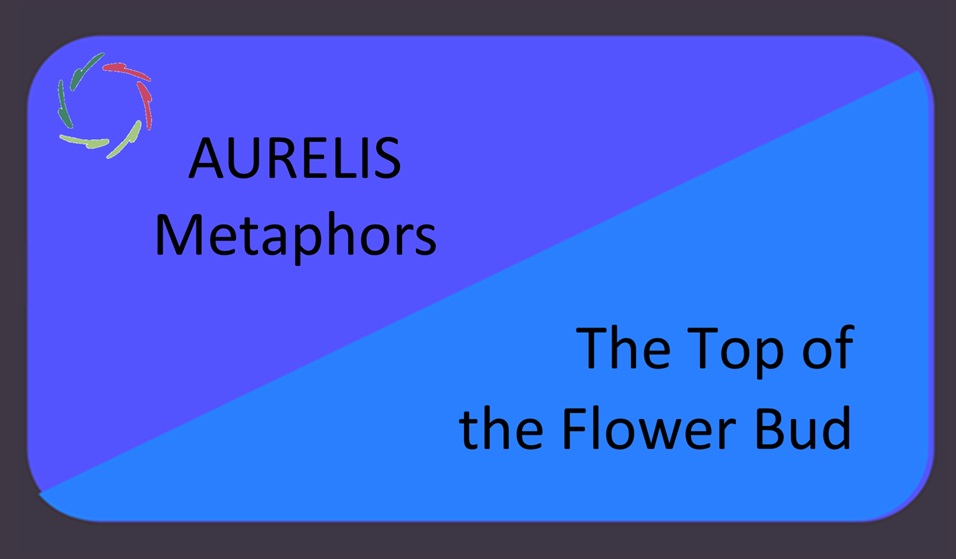Five Ethical Values in AURELIS Sessions

These values can help you toward a deeper immersion in AURELIS sessions ― a crucial element of effectiveness.
Ethics and effectiveness
Generally, these seem two very different domains, even close to irreconcilable.
This impression may stem from the fact that ethics is seen chiefly as the do’s and don’ts an individual needs to comply with ― whether in the guise of X commandments/prohibitions or a general principle. This is ethics from the outside in. No wonder this meets resistance from the inside out. It is an invitation for resistance.
The Aurelian way
Here is only an invitation for the individual to let things happen from the inside out ― including as an ethical stance.
[Of course, this doesn’t mean the law is unimportant. However, it does mean that the law should be compatible with humans ― not mere-egos but total selves.]
This stance leads to the importance of ethics inside the healing process.
It also naturally flows into the importance of ethics concerning the support that AURELIS sessions can provide. This goes better the more profoundly these values are understood ― which is not straightforward, for instance, in the difficulty to profoundly grasp one value without all others.
Let’s go over them in relation to AURELIS sessions and in the form of recommendations to be digested outside of sessions, so you have them incorporated during the sessions themselves.
Please read first: Five Aurelian values
Openness
Listening to a session, you can imagine that there is nothing between you and what you are listening at. The session is not something from outside that reaches you through some inter-medium (words, thoughts). Just let yourself be in the session as a creature of openness.
Try to feel that you are present in the session ― and only there.
Trust(worthiness)
To be as open as possible, you need to trust the happening. Try to be clear about this from the start ― or before. Since a session can go deep inside – if you let it – you need to trust this to happen. Trust is asked for at a conscious level and also at a non-conscious level. Since the latter is difficult to assess, as a matter of fact, it’s good to listen to your intuition. You might do a few sessions of self-exploration.
This is not only about trusting the AURELIS philosophy and concrete elements but also – and even more – about trusting yourself. Are you, as a total person, the one you want to see in this world? Do you basically trust yourself? During a session, it is better to be convinced of this.
Respect
This may be seen as a further step on top of trust. Without trust, it is not easy to respect. The respect lies in your wish to do the best for yourself also during a session. You can show respect to yourself through your body posture as well as your ‘mind posture.’ Make self-respect explicit, like being on a wave. The session is the wave. Your self-respect is a surfboard.
Freedom
During a session, feel free to follow it or have wandering thoughts. You are also free to choose openness ― or less openness. If the latter appears, that’s OK too. Afterward, you can think about the why. Why has there been less openness, one way or another? How can you change a bit your mental position so there can be more openness without coercing yourself in any way? This may give you valuable insights.
Depth
Anything may happen during a session if you do it well. You may reach through something at a more superficial layer, and something deeper pops up. This is not something new, but what has been there for possibly a long time. If it comes to the fore, it’s because it’s important and has always been so. Trusting this process of attaining depth is needed to be able to invite it. Don’t push anything in any direction.
This way, AURELIS sessions themselves are ethical.
Again, not in any sense of traditional thou-shall(-not) ethics. The sessions are merely doors. The ethical stance is your going to the other side, finding morality in healing. You may recognize in this the dual goal of (self-)Compassion: relief of suffering and fostering growth.
What you can attain through doing sessions as well as possible is the ethics of being you.


